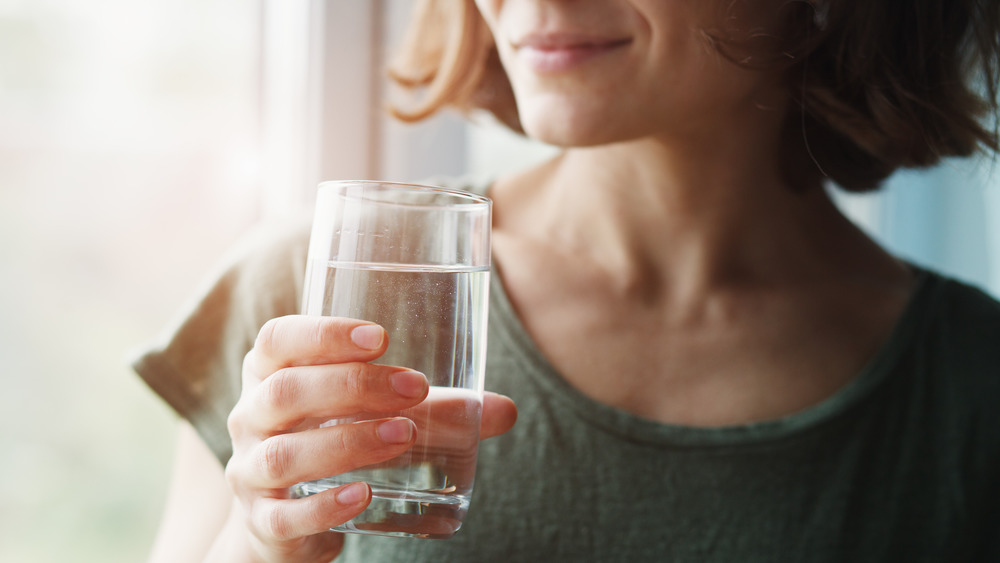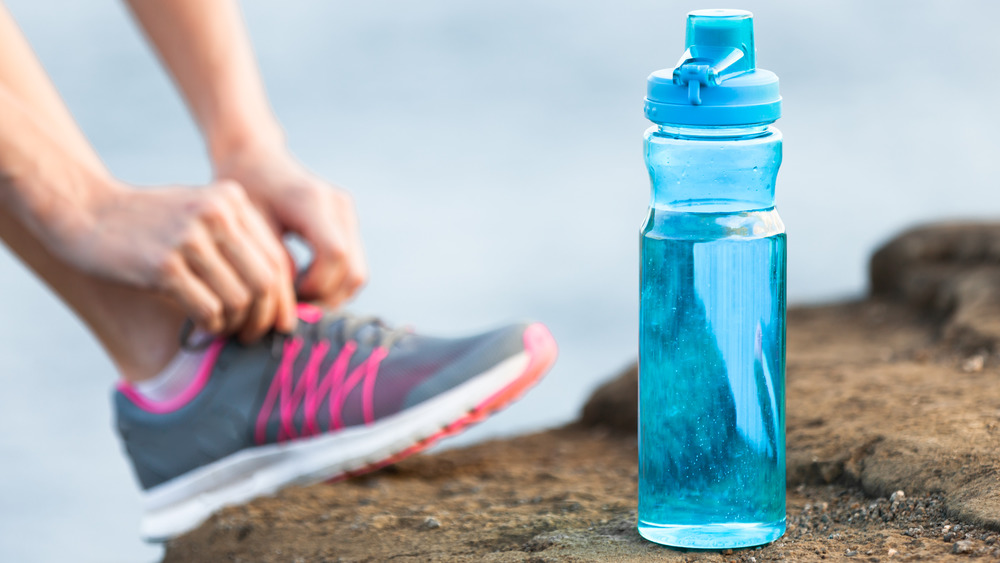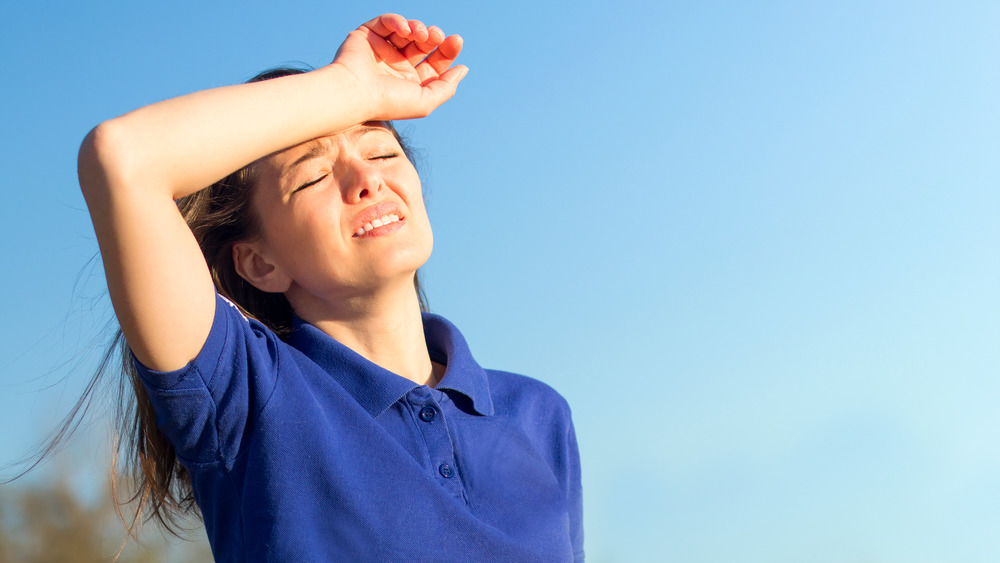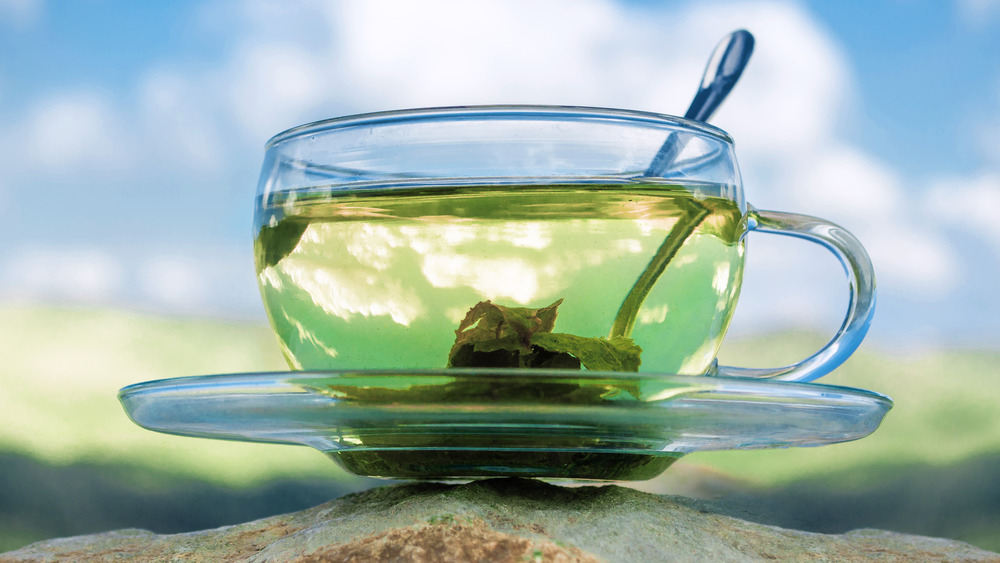Here's What Happens When You Drink Water Every Day
One thing we've all been told time and time again is that you need to drink eight glasses of water each day. It's kind of like the white noise of nutritional advice — something we hear, but few of us actually pay attention to. It's just water, we'll drink it when we're thirsty, and we won't if we're not. Well, it turns out that we may be partially right in ignoring the eight glasses recommendation since the CDC says there's no hard and fast rule for how much water you need to drink. Still, it is very important to stay hydrated (though not too hydrated — even with something as innocuous as water, it's possible to get too much of a good thing).
Would it be easier for you to make the effort to drink enough water if you knew exactly what it was going to do for your body? Yes, probably. That's why Mashed spoke to certified personal trainer Kaley Hatfield to explain why you should make sure you're getting enough H2O every single day.
How water helps our bodies
Hatfield lists off a number of ways in which water is an unsung superfood all by itself. She says that since our brains are mostly composed of water, drinking water gives "our brains the essential fuel they need to keep us thinking, focusing and functioning at our best." Hatfield also says that water helps to flush toxins out of the body in the form of urine, and also, as a component of blood, helps our bodies to carry essential nutrients and oxygen to every cell in our bodies. As she puts it, "Without water, nothing would flow right in our bodies." Water, she says, also helps to promote healthy digestion, and drinking sufficient quantities of water can even help promote weight loss.
In regards to the last claim, since it's likely the most attention-getting one: No, water is no miracle weight loss elixir. You can't gobble down a doughnut and have a water chaser flush all those calories right out of your body. There are a few studies, however, showing that upping your daily water intake can help give your weight loss a nudge in the right direction when accompanied with a weight loss plan (via PubMed).
What can go wrong if you don't get enough water?
If positive reinforcement isn't enough to get you hitting the (water) bottle, how about what happens when you don't drink your water? Hatfield agrees with the CDC that dehydration is the most serious risk we face if we don't get enough water into our bodies on a daily basis. So how can you know if you're dehydrated? Well, you'll feel thirsty, for starters. You may also start to feel your mouth getting dry. "If our mouths feel like that," Hatfield says, "imagine what is happening on the inside."
Hatfield goes on to explain that dehydration can lead to brain fog and drowsiness since our brain's not getting its needed fuel. Not drinking enough water can also lead to constipation, since our digestive system doesn't have water helping to break down our food and move things along. Hatfield also notes the fact that dehydration can mess with your hormones and cause your body's fat cells to cling on with stubborn desperation, as all of our body's systems will at that point be "sending ... an SOS type message to keep us safe and healthy." In other words, when you start feeling inexplicably weird and foggy, and you haven't had any beverages in a while, wet that whistle ASAP!
How to boost your water intake
The problem with drinking extra water is that unless you're drinking it ice cold on a 90-degree day, water tends to be pretty blah and boring as far as beverages go. Hatfield offers her best hydration tip, which starts with figuring out how much you should be drinking. She says that we should drink from half an ounce to one ounce of water per pound of body weight. For example, if you weigh 160 pounds, you'll drink between 80 and 160 ounces of water per day, or 10 to 20 cups of water.
Hatfield suggests from there that you should plan it out, having a glass or two when you first wake up, then have the rest at periodic intervals throughout the day, including before, during, and after workouts, with dinner, and right before bed (unless middle-of-the-night bathroom trips don't appeal, in which case you might want to adjust the timing of those final glasses).
If you find the idea of drinking 20 cups a day of water overwhelming, don't worry, the CDC says water consumed in the form of high-moisture foods also counts toward hydration. She Knows also offers additional suggestions: herbal and green teas hydrate as well as plain water, as does fruit-infused water, unsweetened flavored sparkling water, or sparkling water you flavor yourself with a squeeze of lemon or lime. (Bonus vitamin C boost!)
However you get your water, it's helping you get healthier the more you drink. As Hatfield says, "Water is good for EVERY cell in our bodies!"



